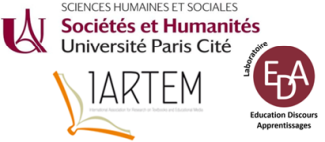This paper presents some aspects of an ongoing research project, funded by CNPq, which explores the relationship between educational resources used in teaching Natural Sciences and the professional development of teachers in this field. The theme has gained significance with the implementation of the Brazilian New Secondary School from 2021 onwards, aligned with the National Common Curricular Base (BNCC), and other educational public policies that have reshaped the curriculum at this educational level. One of the changes was the provision of textbooks by areas of knowledge, with part of the previous contents of Physics, Chemistry, and Biology comprising the new textbook. As a result of this modification, the common content for all students was reduced to 40% of the previous workload, leading to a decrease in the length of textbooks. According to the current rules of the Brazilian National Textbook and Learning Material Program (PNLD 2021), Natural Sciences textbooks, to be used from 2022 to 2025, instead of disciplinary collections made up of three volumes, one for each secondary school grade, as was the case until then, they are now made up of six half-yearly independent volumes, whose contents of which do not follow the previous traditional sequence. In this scenario, assuming that textbooks allow for the retrieval of elements from the constitution of school subjects and their respective didactics and/or methodologies, the research problematic is delineated, aiming to discuss and analyze the contribution that these materials can make to the teaching-learning process and to the initial and continued training of teachers. With this scope, the research problem is posed: how do Natural Sciences textbooks distributed by PNLD 2021 engage with teachers' teaching practice and contribute to their professional development, from the teachers' perspective? To answer this, a descriptive exploratory research has been developed in three stages: i) documentary analysis of the current Brazilian educational public policy and of the Natural Sciences textbooks approved by PNLD 2021, whose results will serve as the basis for the elaboration of instruments for the second stage; ii) a case study involving secondary school teachers and coordinators of teaching degree courses, aiming to understand, through semi-structured interviews, the possibilities of reading and implementing the changes promoted by public policies, which will support the third stage; iii) a large-scale survey with a representative sample of secondary school teachers aiming to understand how PNLD learning materials have been present in their classroom work and in their training. Thus far, documents related to educational public policy have been analyzed, allowing for the highlighting of the pragmatic foundations of an education geared towards the fast insertion of young people into the job market, and aspects of an educational reform that began well articulated, involving curriculum, teaching materials, teacher training, and financing, but faced strong resistance, mainly from teachers. This resistance, along with the lack of guidance and adherence to schedules by the Ministry of Education, has delayed the implementation of actions for teacher training and the production of learning materials. The choice of textbooks that did not follow the traditional sequence of subjects, as was the case until then, also weakened the original proposal. Additionally, the three Natural Sciences collections textbooks approved in PNLD 2021 and most chosen by Brazilian teachers were evaluated. This ongoing evaluation is coding the types of texts, images, activities, and other didactic resources present in the textbooks and has shown that Physics, Chemistry, and Biology chapters appear balanced throughout the textbook. However, it is far from an interdisciplinary proposal. Regarding images, it is observed that the most chosen textbook shows a greater concern with ethnic-racial diversity and works with images more prominently than other collections. However, there is still a noticeable predominance of images with white people, men, and from the Southeast Region (the economically richest region of Brazil) in the textbooks, which still falls short of representing the Brazilian population.
Keywords: Teacher Training; Textbooks; Educational Reform; Public Education Policy; PNLD.
References
Brasil. Base Nacional Comum Curricular(BNCC). Ministério da Educação (MEC). Brasília, DF, 2017. http://portal.mec.gov.br/conselho-nacional-de-educacao/base-nacional-comum-curricular-bncc
Brasil. Lei nº. 13.415,de 16 de fevereiro de 2017. Dispõe sobre a reforma do ensino médio brasileiro, Brasília DF, 2017. https://www.planalto.gov.br/ccivil_03/_ato2015-2018/2017/lei/l13415.htm

 PDF version
PDF version
